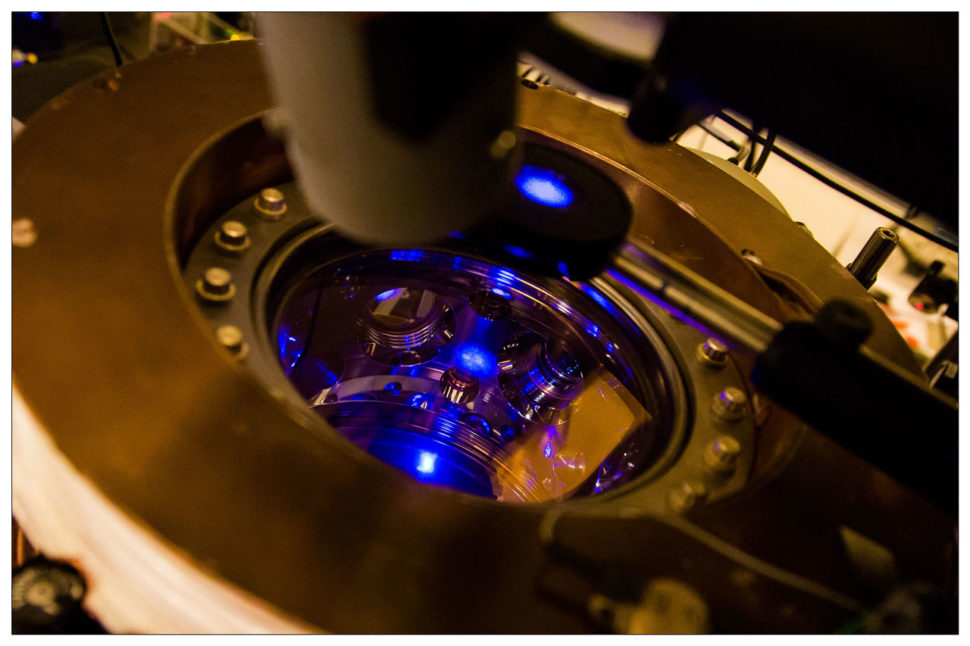JILA scientists have managed to measure multiparticle interactions of groups of atoms isolated within an atomic clock.
The Joint Institute for Laboratory Astrophysics, or JILA, is a joint research institute between the University of Colorado Boulder and the National Institute of Standards and Technology (NIST).
Since the 1960s, JILA’s pioneering research programs have pushed the boundaries of physics and led to interesting developments.
It was in JILA labs in 1995 that, after decades of theoretical literature, the Bose-Einstein Condensate, or the fifth state of matter, was first observed in the lab.
JILA’s research papers into BECs and quantum gases are also integral for industry-oriented research like high-precision devices.
Last year, we reported about JILA’s quantum clock that takes about 90 billion years to lose one second. Just for perspective, that’s the equivalent timeline of the projected lifespan of the Universe.
Today, we shine the light on a recent JILA study that relates to atomic clocks and other quantum devices.
Read More: How to use a Quantum Gas Clock to set Your Alarm Clock
Time Keeping Beyond our Limits
In a new study, and for the first time, JILA scientists have managed to isolate groups of fermions and precisely measure their interactions, all within an atomic clock.
This advance “will help scientists control interacting quantum matter, which is expected to boost the performance of atomic clocks, many other types of sensors, and quantum information systems.”
“We are trying to understand the emergence of complexity when multiple particles—atoms here—interact with each other,” NIST and JILA Fellow Jun Ye said. “Even though we may understand the rules perfectly on how two atoms interact, when multiple atoms get together there are always surprises. We want to understand the surprises quantitatively.”
Hope for the Quantum Future
Existing state-of-the-art time and frequency measuring tools largely depend on individual quantum particles.
No matter how many independent particles are used, these quantum tools will hit a wall at the standard quantum limit. This is a theoretical point beyond which no further improvement is possible.
Thanks to the work of JILA scientists, “harnessing of many-particle interactions could push that wall back or even break through it, because an engineered quantum state could suppress atom collisions and protect quantum states against interference, or noise. In addition, atoms in such systems could be arranged to cancel each other’s quantum noise such that sensors would get better as more atoms were added, promising significant leaps in precision and data-carrying capacity.”
Prof. Jun Ye and his team have already put many years into their Strontium Atomic Clock project. As of the writing of this article, it is the most accurate timekeeping device ever made.
Quantum clocks sound like a far-fetched concept whose real-life benefits may never come.
Atomic clocks may also have other uses outside of the lab. At a minimum, they could help with problems such as predicting volcanic eruptions or regulating road traffic.
The sponsors of this project include NASA, DARPA, and the U.S. Army Research Office.







Comments (0)
Most Recent